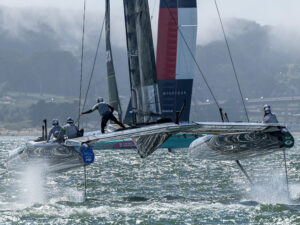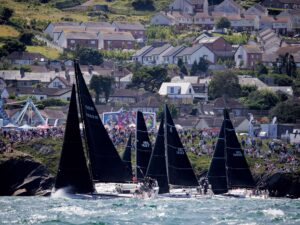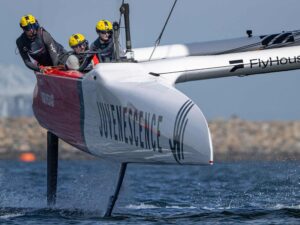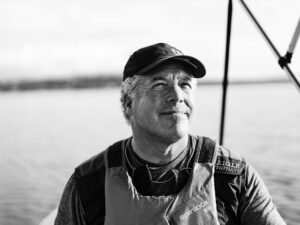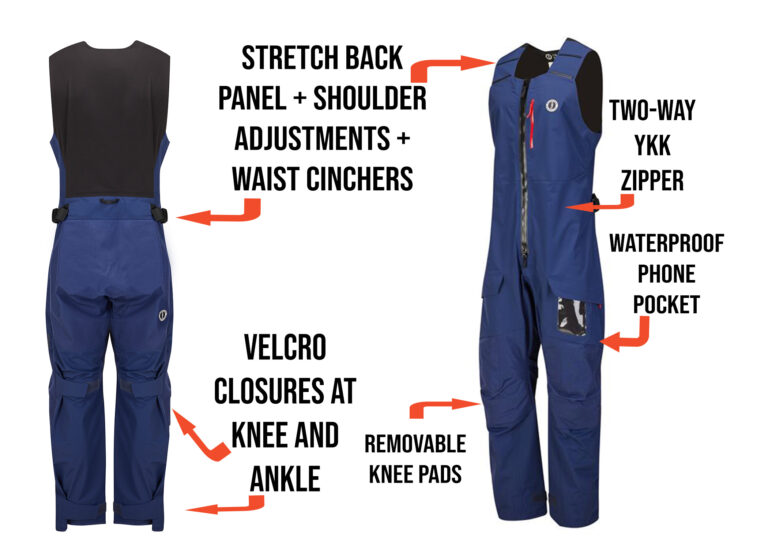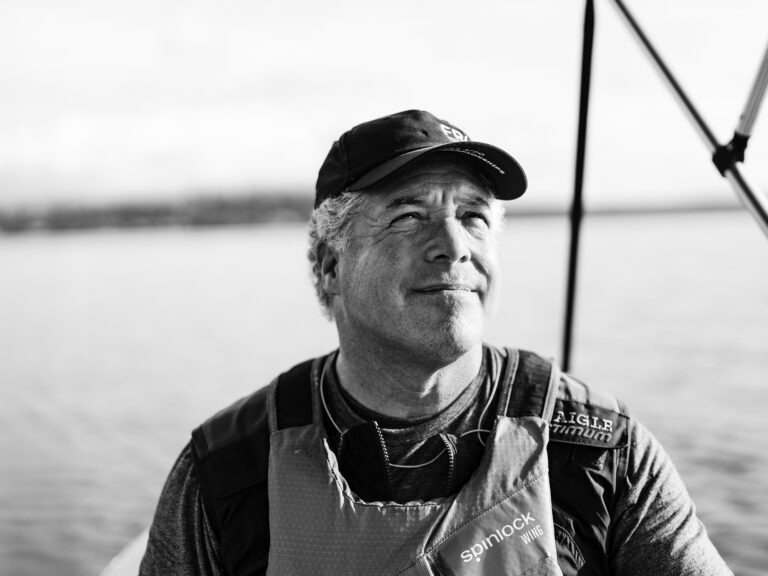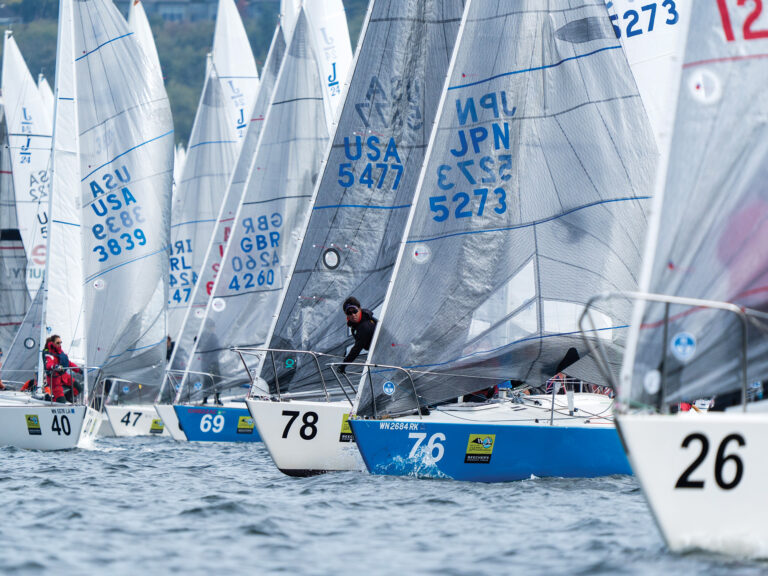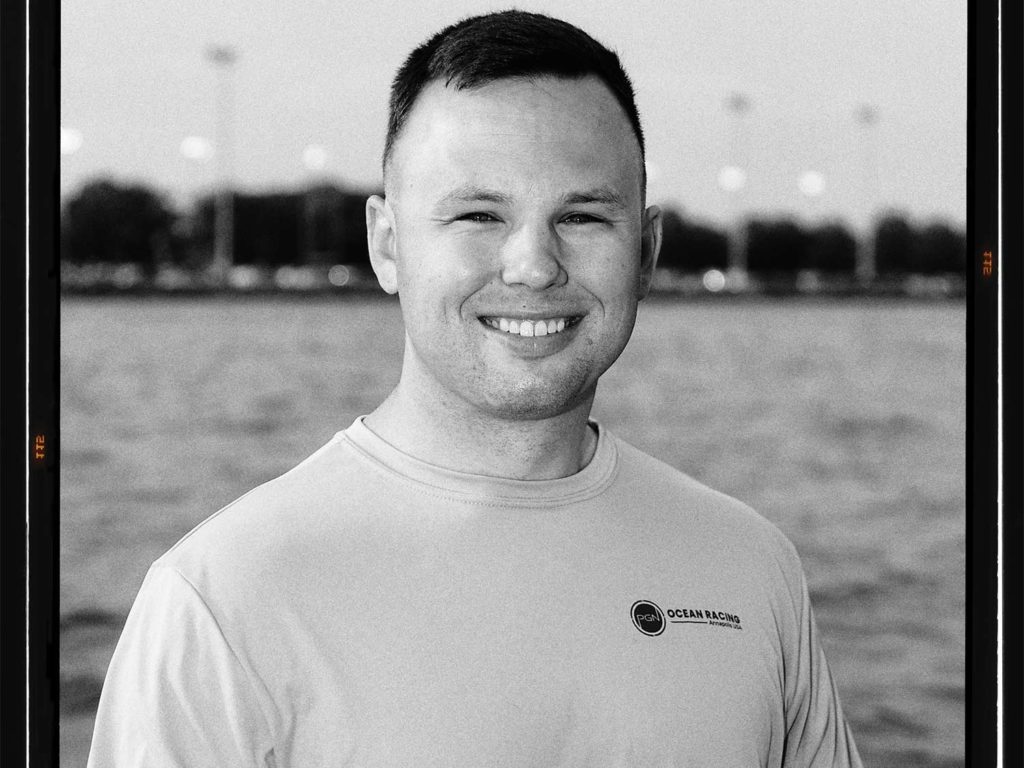
“Why not?” There’s a phrase that leads to trouble. So too does its problematic next of kin: “If not now, when?”
Those were the sorts of thoughts rattling around the mind of Peter Gibbons-Neff last year as he considered his future on the verge of transitioning from active duty after a 10-year stint in the Marine Corps.
A captain and US Naval Academy graduate, he’d survived two deployments to the war-torn Middle East and a divorce, and was back on home waters last year, working at the Pentagon and living in Annapolis, Maryland. With the rest of his life looming large, he wondered, what next?
It turned out the answer lay around the corner from his place in the Eastport section of the quaint old sailing town. It was a boat, of course—a life-altering, slippery little beauty designed to the Mini 6.50 class of tiny, trailerable race boats in which every other year a gaggle of grizzled Frenchmen charge alone into the tempestuous Atlantic on a 4,000-mile sleigh ride to the Caribbean. And, of course, it was for sale.
“I got a test ride,” Gibbons-Neff says, “and I fell in love with the boat. I loved the speed, the size, and what you can do with it. The timing was just right.”
This was 2020, the year of COVID-19, and he figured that by September 2021, if he hurried, he could get ready for the start of the biennial Mini Transat in France, the premier event on the global calendar for the 21-foot sleds. Out there alone on the ocean blue, he wouldn’t have to worry about quarantines, masking or hand-sanitizing. That sounded good. And at 32, in the prime of life, he was fit and ready for anything.
Plus, he had a mission. Gibbons-Neff, who trained local troops and conducted intelligence during his deployments in Afghanistan and the Middle East, did not personally suffer from post-traumatic stress due to combat, but he knew plenty who did. He’d become involved with a stateside organization, US Patriot Sailing, that introduced veterans to racing as a way to help them transition back to civilian life. He figured he could raise awareness for US Patriot Sailing by flying its flag in the race.
The boat was in good shape, he determined. There are two classes in the Mini Transat—fiberglass, fixed-keel production boats that are largely standardized to limit cost but still plenty sporty, and prototypes with lots of carbon fiber, canting keels, foils and other pricey gewgaws. Gibbons-Neff’s boat, which he renamed Terminal Leave in honor of his transition, was a competitive eight-year-old production model that a local racer had used for the Bermuda One-Two and other offshore events. Neither of the two masts was class legal, so a new one was in order. All the electric wiring needed replacing, and sails, rudders and brackets, standing rigging and a host of other items begged for refreshing. He was hard at it all winter with his girlfriend, Jane Millman, who runs the Basic Sail Training for Midshipmen at the academy.
Gibbons-Neff has plenty of sailing experience. His late father, Peter Sr., campaigned a Farr 39.5 called Upgrade on the Chesapeake and in offshore races in the early 2000s, and Peter Jr. worked the bow starting in middle school. The family lived outside Philadelphia, but young Peter spent summers in Annapolis with cousins, racing dinghies at Severn Sailing Association. At the academy, he was on the offshore sailing team for four years and skippered the TP52 Invictus in the Bermuda Race his final year.
As for singlehanding, he’s done none. He’s banking on his service to help with the challenges of sleep deprivation. “There’s a lot of sleepless nights in a war. You have to keep track of nutrition and concentrate on decision-making. As an officer, you get that experience,” he says.
Gibbons-Neff should have plenty of sea time by the day the race starts in September 2021. He put Terminal Leave on a ship to France in April. Summertime promises a grueling regimen of first finishing up the boat and then training. To qualify, he must complete 1,500 nautical miles of shorthanded racing in Europe and a 1,000-mile solo qualification sail across the English Channel to Ireland and back.
Only 84 racing slots are available, about half set aside for prototypes and half for production boats, and 125 or so entries have preregistered. Much still can go wrong to short-circuit Gibbons-Neff’s bid, but he is upbeat about his prospects.
He has a stable of sponsors led by Fawcett’s Boat Supplies, the venerable Annapolis chandlery, along with Gill, Harken, New England Ropes, Switlik safety gear and others. Jeff Miller, general manager at Fawcett’s, says the company does not generally sponsor racers, but in this case: “We loved his story—a local guy from the Naval Academy, his service in the Marines, and an avid sailor, as was his father. We felt like we could help keep him safe.”
Gibbons-Neff doesn’t expect to win the Mini Transat, but even that is not impossible. “It’s a boat race, after all,” he says, with a twinkle in his eye. Whatever the outcome, it’s one of those events that make you bigger and prouder just to try, and prouder still if you can bash through the breaking waves and make it to the finish.
Peter Gibbons-Neff is now racing offshore in his first European training race. Follow his progress at SoluSport.

